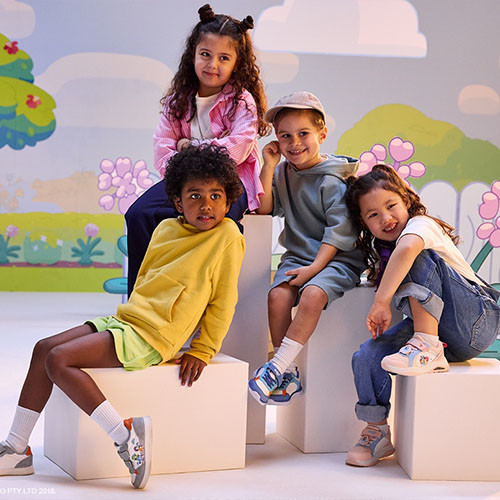The ‘buy less, choose well, and make it last’ mantra was raised during a special panel session at the Brand & Retail Conference this week where leaders from George at Asda, Boots and Character.com championed the need to prioritise sustainability at retail level.
“It would appear to contradict profitability,” said John Carolan, head of category at Boots for baby and GM addressing the leading argument against the buy-less ideal. “But sustainability is a growing emphasis for consumers and soon customers will prioritise their values over everything else.”
The panel – also featuring Scott MaCrae, buying manager at George at Asda and Karen Hewitt, buying director and co-founder of Character.com – was led by Julia Redman, founder of Buyers’ Eye, through a journey of the issues affecting high street and online retail right now with a particular emphasis on the role of the retailer when it comes to sustainability.
Shipping, sourcing, UK manufacturing, and of course, ‘quality over quantity’ were all highlighted as major contributing factors to what sustainability looks like from the retailer perspective, particularly when weighing a brands’ sustainability targets against current cost of living crisis.
“Making long-lasting product will help with profitability in the long-term, because it will build,” said John. “People want to buy less but buy better. Sh*t products that are marketed well have no future, because crap product doesn’t work. You might sell a lot for a short time but people don’t want it and it will damage your brand.”
Part of the Boots Walgreens Alliance, the UK health and beauty specialist has been on a long journey of sustainable development. So too, has George at Asda which has long led the charge for making sustainable choices accessible and affordable for families.
“Look at the rise in popularity of pre-loved sales,” said Scott MaCrae. “People’s perspectives have changed dramatically. We pride ourselves on quality. School wear, for example, we know a lot of that will get handed down. My four daughters shared all of theirs. You can get great value at a low price.
“We partnered with Yellow Octopus for a take-back scheme which goes to the Salvation Army for resale. Product that’s no good gets broken down and used for textiles. What this shows is it has to be on us to provide a solution, it’s not the customer’s problem.”
Mitigating risk to retail
Developing a closer relationship with the shopper by gathering and analysing data and offering more bespoke services via drop-shipping or print on demand services are also ways in which the retailer can begin to reduce its environmental impact.
While sourcing closer to home is a quick answer to driving down the miles of travel between source and shelf and keeping those emissions as low as possible, by gaining more insight and data on what a customer really wants retailers can better mitigate their own risk of over production on lines that won’t sell.
“We have a great way to see how customers are reaching to a brand,” said John. “We’ve got more knowledge on the relationship between brands and customers than ever before. It’s so much quicker to trial and learn and know how to expand on to what to do next.”
Keeping stock off-hand via drop-shipping means a retailer can react to customer demand quicker, particularly when working with UK based specialists to provide the licensed collections with quick turnaround.
“We work with Brands In on drop-shipping to trial collections,” said George at Asda’s Scott. “That allows us to take the personal filter off and allow the customer to do the voting. But you need all the data and insight you can get to get a feel for it. Then we can judge what we think will become really big and get behind it and support it.”
On whether manufacturing will come back to the UK, John said: “I made my career sourcing in Leicester. I’d love to see it come back to the UK. With shipping costs what they are now, who knows? It could be on the horizon.
“There’s no reason we can’t have £10m businesses here in the UK. UK manufacturing is not dead, there’s plenty of opportunity there if you find it.”
Want to read more news like this? Simply sign up to our daily digest by clicking here. You can also follow @LicensingSource on Twitter and @licensing_source on Instagram.





























